NRL 2023: NRL players must stop being motivated by greed, Paul Kent
The current mob of NRL players say they care, they just don’t act like it and if they continue ripping the guts out of rugby league there may not be a game in the future, writes Paul Kent.
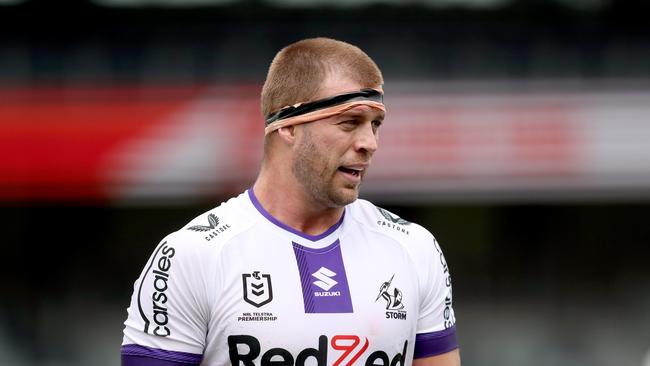
Opinion
Don't miss out on the headlines from Opinion. Followed categories will be added to My News.
Every time a new broadcast deal is inked, NRL players fill their eyes with dollar signs and immediately follow a predictable argument that convinces only the dull of thought.
Sadly, this is too often seen as enough nowadays.
The argument goes that players are the ones who put on the show so they are the ones deserving of the money.
This is one of the great falsities, and every time I see it reprinted as legitimate reasoning little mushroom clouds go off in my head.
It might surprise Christian Welch to know that well before he played frontrow for Melbourne there was a Storm front-rower named Glenn Lazarus who was twice the player he is.
He might also be surprised to learn that Lazarus even helped build those fans who go along to watch Welch and his teammates play now and that he also helped build the television interest that also pays all the money that Welch is attempting to capitalise on now.
Before Daly Cherry-Evans wore the number seven at Manly there was a halfback called Geoff Toovey who gave more to the club than just performance. He sacrificed for that team.
This is something players seem to have a hard time understanding.
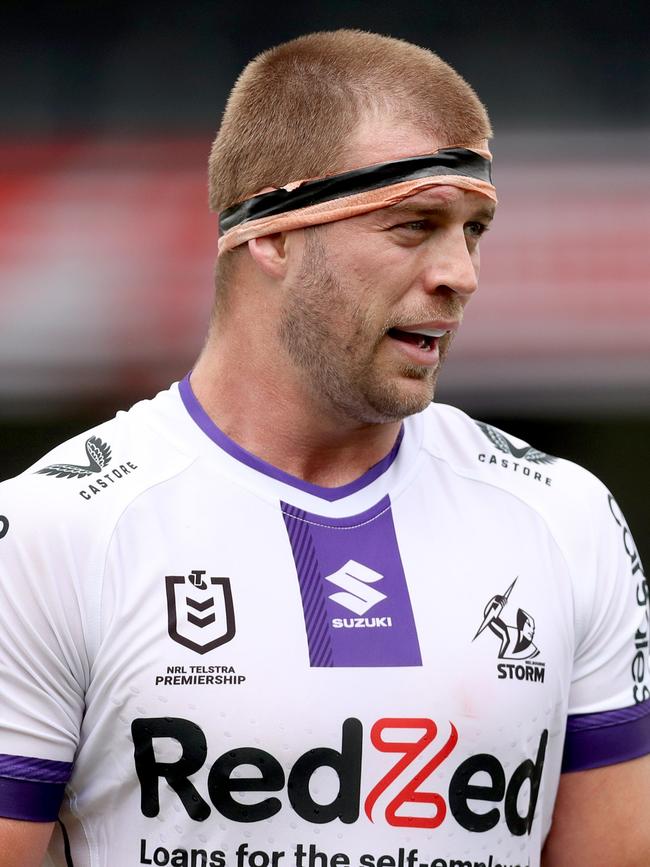
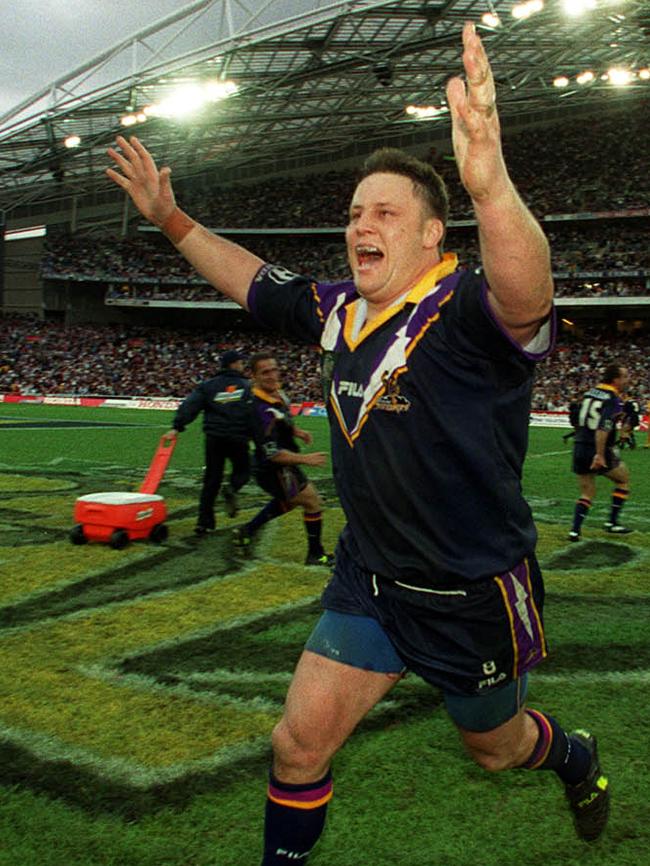
Part of what the game is worth now is because of those players who came before them.
Truth is, NRL fans don’t traditionally follow players but a piece of clothing, and one usually steeped in tribalism. The colours of their team, the history of that team.
Players, they come and go.
Unlike, say, when an entertainer like Prince or David Bowie dies and their music goes with them. They put on the show but once they are gone, in the most permanent of retirements, they will never write another song, never perform again.
It’s done.
Over.
Their music survives only in recordings, like old game films.
When players go, though, they are replaced by new players.
That’s why Parramatta still has fans turn up every week even though Ray Price and Mick Cronin and Brett Kenny and Peter Sterling all stopped playing for Parramatta decades ago, back when the Eels still won premierships.
The Raiders still have fans buy their tickets each week even though they don’t have Daley, Meninga, Clyde and Stuart running out anymore.
Fans follow the jersey, and they follow history.
If every current NRL player caught career-ending Covid or suffered a terminal Nintendo thumb sprain and could never play again then sure, there would be some downturn in quality as the next best 500 players were pushed through.
But the fans would still be there each week, following their team, buying the jersey, and so would Super Saturday. And much of the money they already bring would still be there.
What might not be there, though, is the game some day down the line if the players continue ripping the guts out of it for every extra five cent piece they believe is their right.
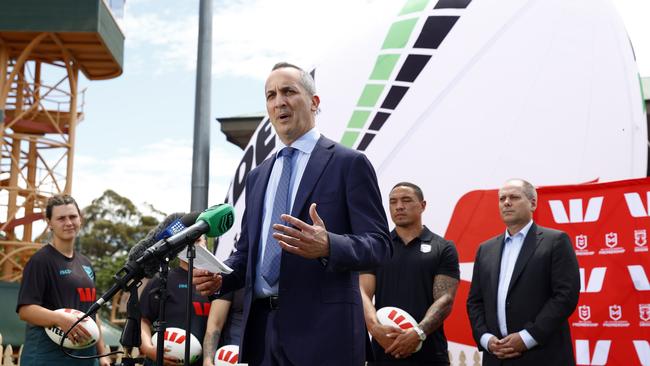
For every dollar extra the NRL now has to give the players for the various future funds they are demanding, in this current Collective Bargaining Agreement negotiation, it must come out of grassroots and assets.
Last I looked, there was not a player in the NRL who did not graduate from a junior club somewhere.
Yet bush clubs and A-grade sides are going broke or shutting down because of the lack of financial support and playing numbers.
Local competitions are underfunded and under attack from rival sports, taking participants, sponsorship money and fans.
The current mob of NRL players say they care, they just don’t act like it. Not when it comes to sharing the wealth, even if some of those now extinct junior clubs were once their junior clubs.
And as for assets and the NRL, the recent Covid shutdown highlighted how important assets are for the game and the need for the game to take some of today’s money to invest.
When Covid shut down the game in 2020 the AFL got a $600 million loan approved by the banks to keep the code alive, to fund clubs, by borrowing against the $1 billion Marvel Stadium, which it owns.
Before the previous broadcast deal, NRL chairman John Grant tried to borrow $30 million but was rejected by all the banks because the game did not have an asset to put up as collateral. The banks said no to a loan because no bank wanted to be the institution that closed down rugby league when it could not afford to pay its bills.
So instead Grant asked for a $100 million advance from the broadcasters, who then wanted it back when Covid hit.
Only the fact current chairman Peter V’landys rushed the game back for the now famous May 28 restart was the game able to survive.
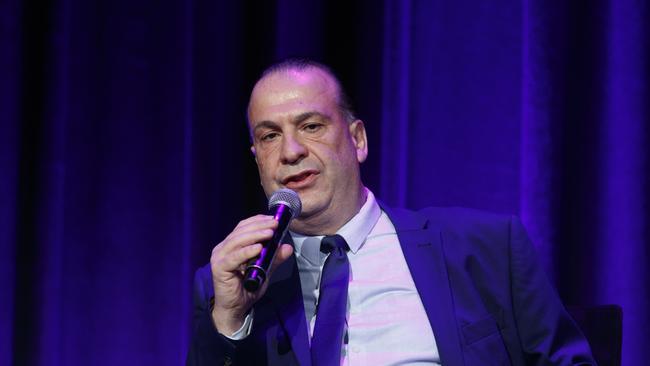
The reality is the game was months away from being insolvent during Covid, in part because it did not have an asset.
Yet every extra dollar the RLPA is now fighting for, if it is successful, will come out of asset and participation funding.
And yet they chase it, not happy with what they have already got.
The average player salary has gone from $338,976 a year to $401,823.
One player, at Newcastle, recently negotiated a $470,000-a-year deal which had a ratchet clause, tied to the salary cap, built into it.
It meant his salary immediately jumped to $556,000-a-year, an $86,000 pay rise.
Just his pay rise, for doing nothing extra, is worth more than the average registered nurse’s salary, of $80,523 a year.
Yet they want more.
More, on top of the extra $200 million also they get, over five years, for third party payments, on top of the salary cap of $1.23 billion for the next five years.
They want future health care, for one, so the NRL is responsible for their treatment years after they retire. They might drink beer six days a week and rest on the seventh in their retirement but, if they get a little dementia in later years, they can claim it against that round two concussion they got against the Broncos 20 years earlier and not their lifestyle.
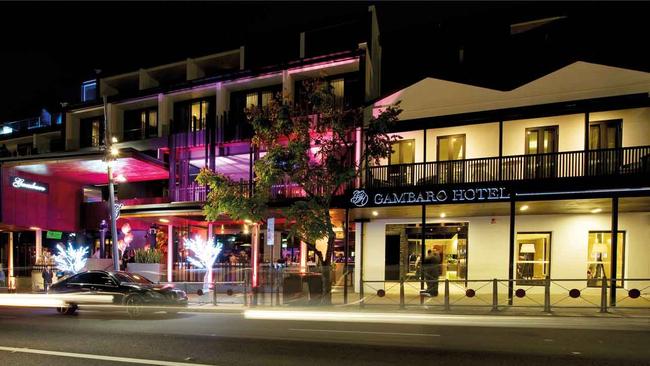
In what job are businesses responsible for the health of previous employees long after they have left? Isn’t that part of why they are paid so well now, to future proof their future?
Not only that, the players also want full control over that money, without NRL interference.
Oh, you bet the players believe this is a tremendous idea, allowing them to spend the money where they please.
Apparently they remain unaware that such an agreement will also empower their union’s head office – after all, they hold all the purse strings if it happens – which could also leave them vulnerable to the competence, or even bias, of their union officials.
There’s no checks or balances once it is inked in the agreement.
The players argue they are putting their bodies on the line for the entertainment of the fans, so they deserve the money.
True, but that is also why they are so well paid now.
Part of the premium for what they are paid today is for that risk they take.
All this as, meanwhile, they argue for the welfare of the game even as they ignore large parts of it.
It’s time the players pulled their heads in, stopped letting greed and short term gain dictate their motivations, and let what’s left of the money go down the line to grassroots and participation.
Lord knows they need it.
Because there is one universal truth: we all want a healthy game in the future, long after this current mob have cashed their cheques.
SHORT SHOT
A TRUE story …
Some years back a young boy came home with tickets to a Swans’ game. He asked his father if they could go.
The father, a staunch NRL man, said no.
The boy held up the tickets and said, “But dad, Adam Goodes asked me to go.”
The Swans had done a coaching clinic at his school and Goodes, the Swans legend, had handed the tickets to the young boy and told him how much he’d love to see him at the game.
The kid was sold. It was Adam Goodes!
The father, refusing to give in, rang the Wests Tigers, who trained not far from the boy’s school, and told them what happened and asked if the Tigers could come along and do a coaching clinic and get the kids interested in rugby league.
The Tigers said they were busy.
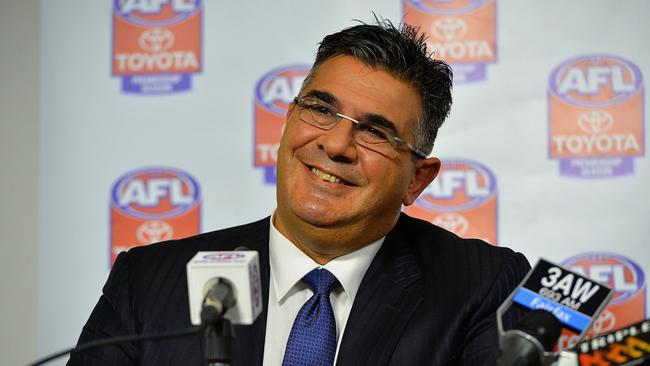
Part of the failings of previous NRL administrations was the surrender of the schools, allowing the AFL to waltz in and put on clinics and pay for goalposts and, as former chief executive Andrew Demetriou secretly planned years ago, begin to take land away from NRL.
Demetriou hatched the secret plan, to replace NRL posts with AFL posts, for one, as part of the AFL’s strategy to kill rugby league.
It was clever and has been highly effective. Incompetent NRL administration in the past simply allowed it to happen, believing there were bigger problems, not realising how effective it has been.
AFL is in far more schools than it ever was in NSW and Queensland, and rugby league in far less.
So one of the few green shoots of hope came out this week when the Wests Tigers, the very same club, with new bosses, sent all 36 contracted players on a two-day blitz to 96 schools across their region.
It was a classy move by the Tigers and shows that hopefully, while the battle remains, at least in some parts the fightback has begun.




